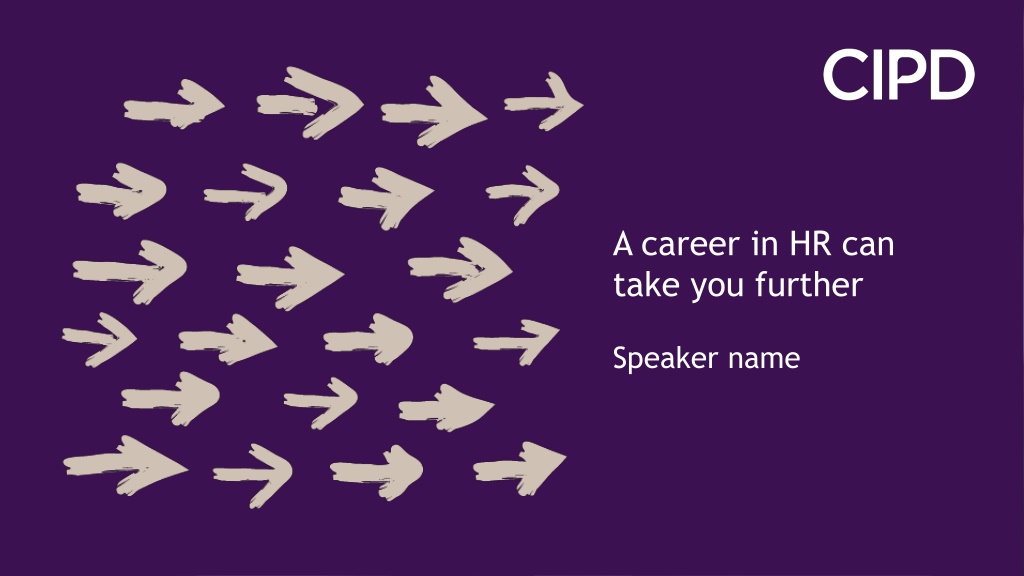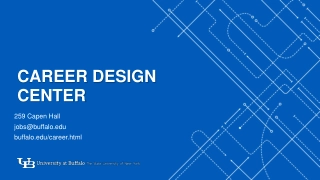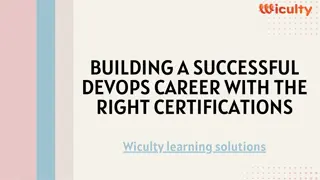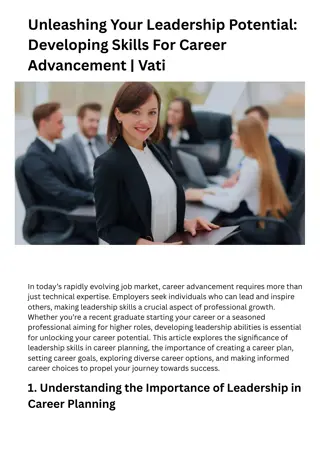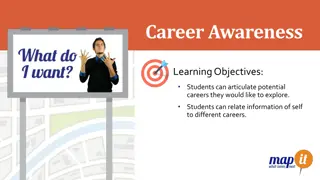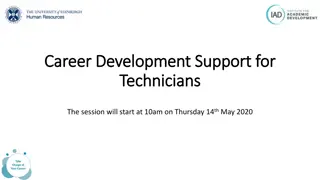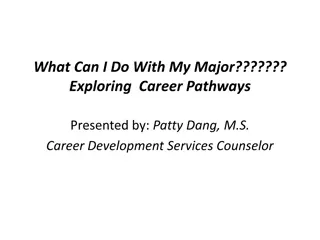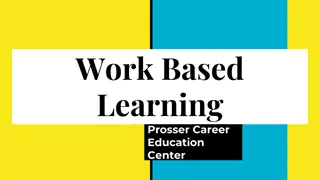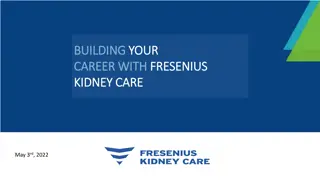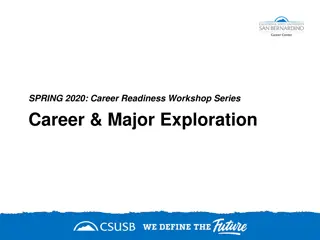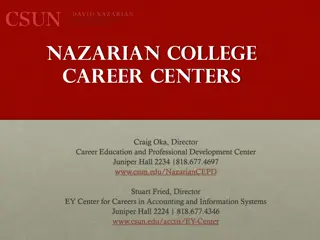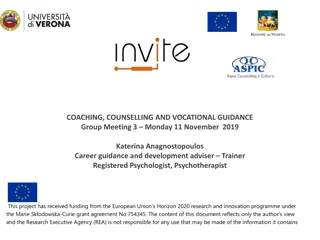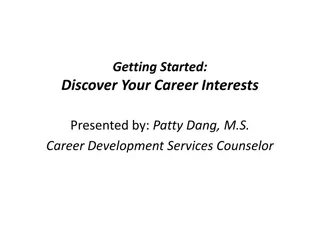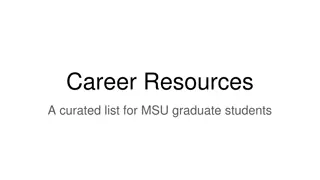Exploring Career Opportunities in Human Resources (HR)
Discover the world of HR through the lens of the CIPD, including the definition of HR, various roles within the field, reasons to pursue a career in HR, required skills, earning potential, and pathways to enter the profession. Explore areas like organization development, performance management, employee engagement, and more with insights from real HR professionals.
Download Presentation

Please find below an Image/Link to download the presentation.
The content on the website is provided AS IS for your information and personal use only. It may not be sold, licensed, or shared on other websites without obtaining consent from the author. Download presentation by click this link. If you encounter any issues during the download, it is possible that the publisher has removed the file from their server.
E N D
Presentation Transcript
A career in HR can take you further Speaker name
Were going to cover: Who are the CIPD? What is HR? What roles there are within HR Reasons to work in HR Skills needed to work in HR What you could earn How to get into HR
HR is about Making sure the business objectives are met through people whilst also making sure workers are ethically treated, looked after and engaged.
Hear from real HR professionals: Visit the CIPD YouTube channel for more videos like this!
Hear from real HR professionals: Visit the CIPD YouTube channel for more videos like this!
Areas within HR Organisation development Performance and reward Employee relations Employee engagement Learning and development Recruitment and talent planning HR generalist
Organisation development Organisational development or OD is to do with improving an organisations effectiveness by taking a look at its: Processes (how things are done) Structure (how a business is organised) Culture (how people behave in organisations) Then creating a plan for how to improve them.
Employee engagement Businesses perform better when their employees feel connected to the organisation and happy about their roles. Employee engagement professionals try to measure this set of feelings, then figure out ways to improve or nurture them.
Performance and reward Performance and reward professionals help decide how much people in an organisation should be paid and rewarded based on their performance.
Employee relations Employee relations is about managing relationships with an organisation e.g. between managers and workers. It can involve: working closely with trade unions mediating conflict helping to create trust through transparent communication.
L&D Learning and Development or L&D is about helping employees to learn and develop to reach their potential. L&D professionals: Identify knowledge or skill gaps for individuals or teams Choose the right ways to fill the gaps e.g. training, mentoring Evaluate the success of the methods chosen
Recruitment and talent planning Recruitment is about attracting and bringing talent (people with an attractive set of skills and/or knowledge) into the organisation to fill short or long term business needs. For example, if a business decided that they needed to attract more online customers, they may try to bring someone in with a talent for digital marketing.
HR generalist HR generalists do bits of all of the specialist areas, so they experience a wide variety of different tasks.
Why should I work in HR?
Five reasons to work in HR HR gives you a passport to get right across any organisation, and to move between industries and sectors. Tim Pointer, Head of HR 1. Work anywhere! 2. Variety of work 3. It s a growing industry 4. Make a difference to peoples lives 5. Make an impact on the business The best thing about my job is working in a fast-paced environment, there s always lots going on, every day is different. Luke Smith, HR Assistant
Top 5 skills of great HR professionals Gathering and analysing information to make the right decision Interested about how the business works as well as its products, services and customers Ability to communicate and influence all kinds of different people Guided by a sense of moral fairness and willing to challenge unethical decisions Ability to work through problems with patience and determination Skilled Influencer Ethical integrity Decisive Thinking Problem solver Curious
HR salary averages (UK) HR Director Average of 120,263 Up to 222,487 Salary can be influenced by lots of different things, such as: Sector Size of organisation Region Specialism Head of HR department Average of 87,029 Up to 130,543 HR Manager Average of 63,439 Up to 88,180 HR graduate Average of 26,332 Up to 34,232
How do I get into HR?
There are lots of different ways to get into HR Depending on how you like to learn, you can: Do an HR apprenticeship Study an accredited HR qualification Do a degree Do a graduate training scheme (after your degree)
HR apprenticeships We ve been working with M&S, RBS, the NHS, McDonalds, HSBC and the Cabinet Office to create new apprenticeship at level 3 and 5 starting in September so keep a look out! The Higher apprenticeship in Human Resource Management will give you a chance to: Earn while you learn Study towards a level 5 qualification (equivalent to second year of University) Become an associate member of the CIPD Find out more and look for apprenticeships near you at www.apprenticeships.org.uk
Accredited HR qualifications 260 study providers to choose from Study full time, part time, online or through supported distance learning Choose how you want to study Gain professional membership Become a member of the CIPD Get access to a range of career support Choose from a range of different courses Level 3 Foundation (equivalent to A levels) Level 5 Intermediate (equivalent to a foundation degree) Level 7 Advanced (equivalent to a postgraduate degree)
Degrees Human Resources degree look for CIPD approved! Combined degree e.g. business management and human resources Psychology Sociology Economics
Graduate training scheme Grad schemes are a great way to get into a profession once you ve finished your degree. Grad schemes are offered by : Balfour Beatty; BP; Civil Service; GlaxoSmithKline (GSK); KPMG; National Health Service (NHS); Rolls-Royce; Nestle; Unilever; Tesco. And lots more
Resources for more information For more information about: CIPD Career pages https://www.cipd.org/uk/the-people-profession/careers/ Careers in HR www.plotr.co.uk/careers/worlds/hr-world/ Apprenticeships https://www.gov.uk/topic/further-education-skills/apprenticeships CIPD qualifications www.cipd.co.uk/qualifications Routes into HR https://www.cipd.org/uk/the-people-profession/careers/routes-into-profession/
Questions? Email careersupport@cipd.co.uk More information: https://www.cipd.co.uk/careers
